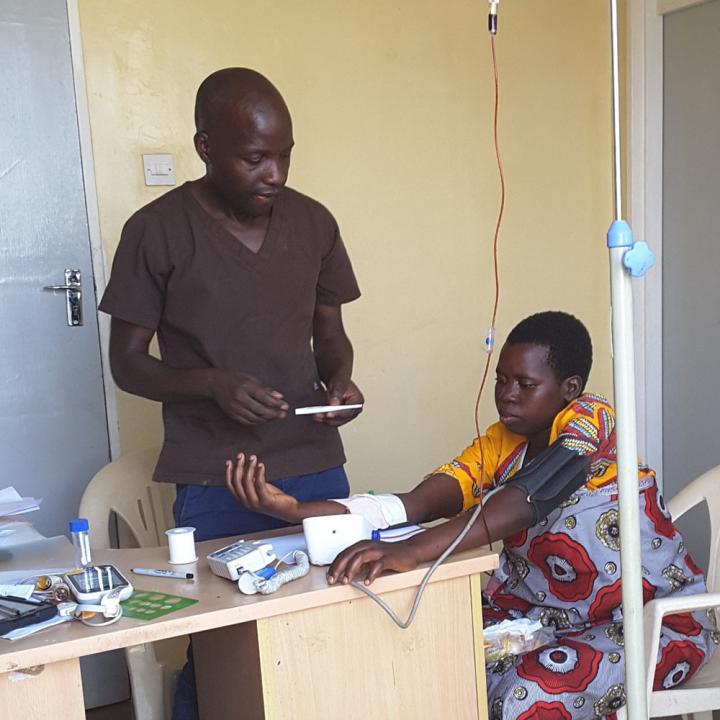
Credit: WEHI, Australia
The World Health Organisation (WHO) has designated Australian medical research institute WEHI as the WHO Collaborating Centre for Anaemia Detection and Control, in recognition of WEHI researchers’ expertise in combatting anaemia.
The designation enlists WEHI researchers to advise the WHO on the best approaches to diagnose and treat anaemia, which is a lack of oxygen-carrying red blood cells or haemoglobin experienced by two billion people worldwide – including almost one in 20 Australian adults.
Anaemia has many underlying causes, including iron deficiency, and can have serious long-term health consequences, particularly for young children. WEHI researchers, led by Associate Professor Sant-Rayn Pasricha, have made significant advances in assessing better approaches to diagnose and manage anaemia, including through large-scale clinical trials in low income countries.
At a glance
- Anaemia is a very common health condition both in Australia and around the world, and can be caused by iron deficiency as well as other health conditions.
- Anaemia and iron deficiency have serious and long-term health consequences, particularly on children’s development.
- As the WHO Collaborating Centre for Anaemia Detection and Control, WEHI’s anaemia researchers will support WHO to develop policies on the best approaches to diagnose and treat anaemia.
A global health problem
Anaemia is a serious and widespread health problem, yet this condition is not appropriately managed or treated in many people in Australia and around the world, said Associate Professor Pasricha, who is also a haematologist at The Royal Melbourne Hospital.
“People who have anaemia are at risk of a range of health complications, related to their blood not carrying enough oxygen to different parts of their body,” he said. “This can include fatigue, heart problems and susceptibility to certain infections such as malaria. Anaemia in pregnant women or young children is particularly serious as it can increases their susceptibility to pregnancy-associated complications, and can cause long-term developmental problems for the child.”
The most common single cause of anaemia in Australia, and in the world, is iron deficiency, said Associate Professor Pasricha.
“Anaemia is an easily detected consequence of a diet lacking in iron – which can also have other, wider consequences on health, particularly in children. Anaemia can also be a sign of other serious health conditions that should be treated, including coeliac disease and bowel cancer.
“Being able to diagnose anaemia, and to understand and manage the causes of that anaemia, can provide a critical boost to the health of people of all ages. Through the new WHO Collaborating Centre for Anaemia Detection and Control, our team will provide the most up-to-date, evidence-based advice to WHO, to ensure global programs to combat anaemia are effective and relevant to the unique circumstances of different countries,” he said.
Benefits of preventing iron deficiency
Associate Professor Pasricha’s research team focusses on understanding iron deficiency, both looking in the laboratory at the molecules that control iron levels within the body; and conducting large international trials of different approaches to preventing iron deficiency anaemia in low income countries including Malawi and Bangladesh. “Our team recently defined which approaches would be effective for different countries, and is leading many clinical trials of iron interventions across South Asia and sub-Saharan Africa,” he said.
“The WHO set a goal of halving iron deficiency in pregnancy women between 2012 and 2025 – as well as making substantial improvements in children’s growth and development that rely on overcoming iron deficiency. There is still considerable work to be done to determine which iron interventions are effective in different countries. As a WHO Collaborating Centre we can help provide WHO with information that will help improve the health of millions of women and children around the world.”
One area where our Collaborating Centre will provide particular support is helping WHO develop guidelines on the best ways to test for, diagnose and treat anaemia. “It’s here that our multidisciplinary skills in haematology, basic science and global health are very useful,” Associate Professor Pasricha said.
There have also been significant advances in how iron deficiency can be diagnosed and treated in Australia.
“Twelve per cent of Australian women are currently iron deficient, and one in 10 Australians has been iron deficient at some point of their lives. Iron deficiency is an issue for Australians of all ages – from young children through to the elderly – and it’s really important that doctors understand the best ways to treat iron deficiency.
“Importantly, there have been some recent advances in the best ways to administer iron supplements to treat iron deficiency – which will have widespread benefits on people’s health,” Associate Professor Pasricha said.
###
Media Contact
Vanessa Solomon
[email protected]
Original Source
https:/




